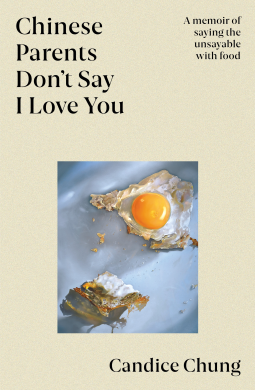Finding Love in Silence: A Reflection on Chinese Parents Don’t Say I Love You
Candice Chung’s memoir, Chinese Parents Don’t Say I Love You: A Memoir of Sayin…, caught my attention with its tender yet poignant premise. The title alone spoke volumes about the complex emotions woven into familial relationships—especially within cultures where words of affection are often left unsaid. As someone who has navigated the intricacies of cultural connections myself, I knew this book would resonate deeply. And it certainly did!
From the very first page, Candice’s admission that she’s never told her parents “I love you” sets the stage for a soulful exploration of emotional restraint and familial nuances. Recently single, she finds herself grappling not only with heartbreak but also with a newfound sense of loneliness at the dining table. When her once-distant Cantonese parents step in to join her on culinary outings, the story takes an intriguing turn. Rather than simply sharing a meal, they embark on a journey filled with the weight of unspoken words and fragmented memories.
The themes of food and love are brilliantly interwoven throughout the narrative. Candice paints a vivid picture of how love often manifests through gestures rather than words—packing lunchboxes with care, preparing dishes just right, or enduring long silences that speak volumes. Meals become a metaphorical space where affection, discomfort, and the attempt to reconnect reveal themselves. This is not merely a cookbook; it’s a heartfelt exploration of how food connects us beyond the surface.
What struck me most was Chung’s writing style. Her prose is sharp, reflective, and often tinged with sardonic humor. I found myself chuckling at how she refers to lovers by their job titles—a clever nod to her tendency to keep emotional barriers intact. Yet, beyond the wit, there’s a depth of vulnerability that makes her reflections profoundly relatable. As she moves from experiences of heartbreak to cultural disconnection, readers are invited to sit beside her as she flips through an emotional photo album—a beautifully fragmented narrative that mirrors the complexities of family dynamics.
Particularly memorable were the moments when the silence between Candice and her parents spoke louder than words ever could. The unaddressed pains and inherited expectations surface in deeply affecting ways, making me feel that tug of familiarity with my own family. One of her poignant statements that resonated with me was, “Love doesn’t always sound like ‘I love you’—sometimes, it looks like ‘You can always come home.’” This encapsulated the essence of her journey and the bedrock of familial affection.
Chinese Parents Don’t Say I Love You is a book for those who have ever felt the silent weight of unexpressed love in their own families, or those navigating the chasm between generations. It’s an exploration of curiosity over confrontation, and Candice’s inviting voice makes the journey all the more engaging.
As I closed this memoir, I felt a bittersweet ache—a reminder of the beauty that lies in the spaces between words. Whether you find comfort in culinary traditions, grapple with familial estrangement, or simply seek a heartfelt story, Chung’s memoir is one that lingers long after the last page is turned. And if you’ve ever wondered how love can be expressed in the quiet moments, you may just find a piece of your own story reflected in hers.
Discover more about Chinese Parents Don’t Say I Love You: A Memoir of Sayin… on GoodReads >>







